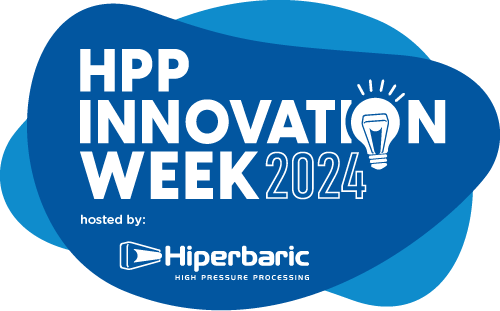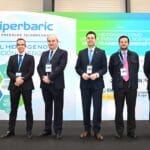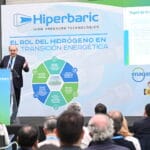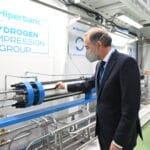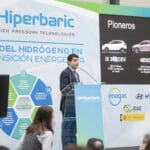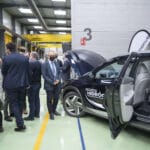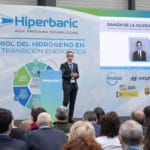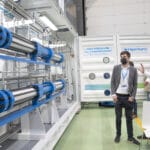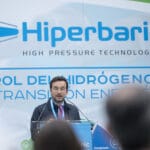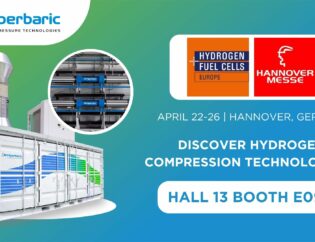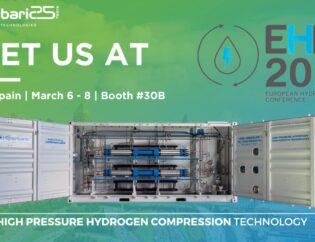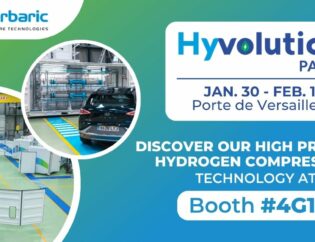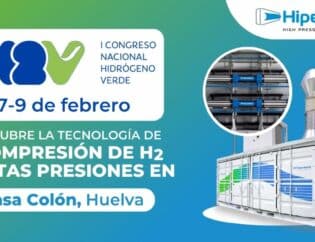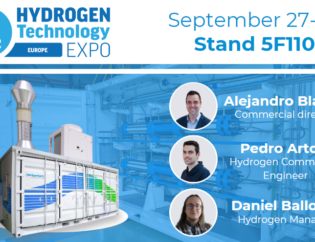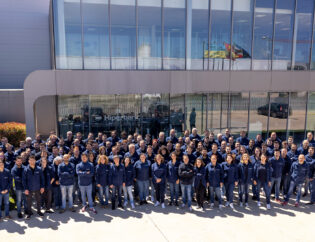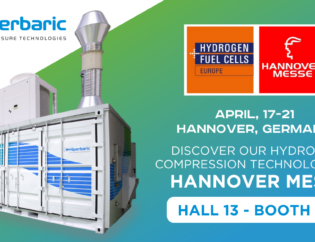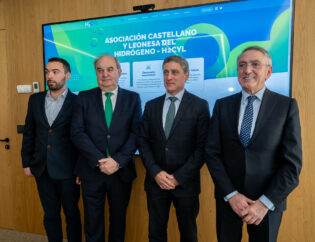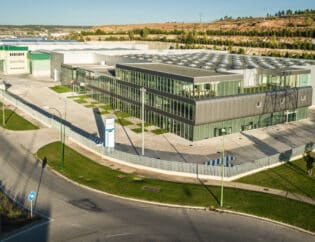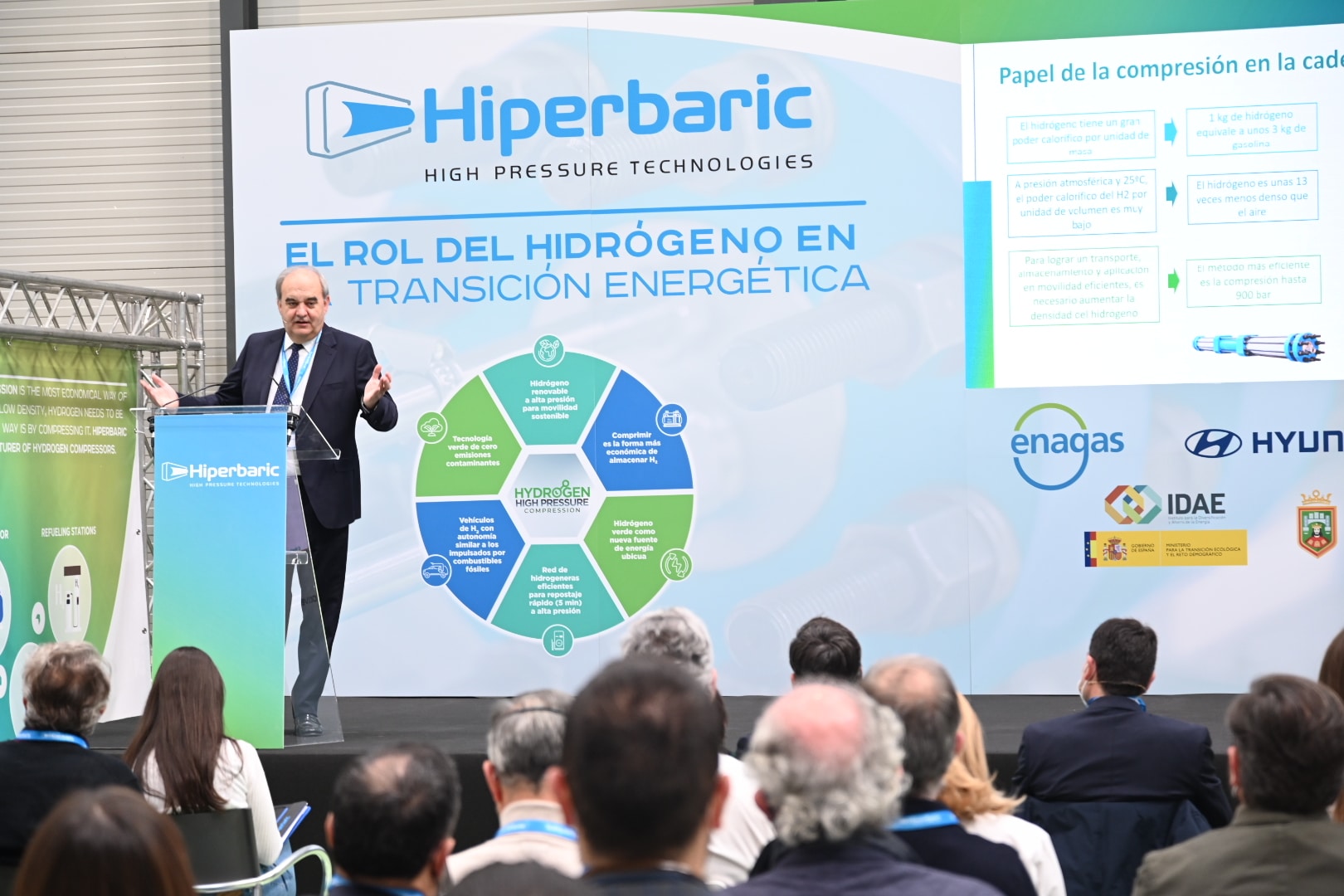
- The industrial project Power to Green Hydrogen Mallorca, led by Enagás and ACCIONA together with CEMEX, the IDAE and Redexis, will allow the deployment of the necessary infrastructures to make the renewable hydrogen ecosystem of the Balearic island a reality.
- Hiperbaric leads the Burgos Renewable Hydrogen Valley project, which seeks to decarbonize the economy and encompasses the entire renewable hydrogen value chain.
-
Hiperbaric’s high-pressure hydrogen compression technology is a complete and advanced solution that can be applied in different areas, especially for fuel cell vehicle refueling at hydrogen refueling stations.
Burgos, December 2, 2021. Burgos-based Hiperbaric, a world leader in the manufacture of industrial equipment for high-pressure technologies, is the first Spanish company to develop hydrogen compressors for sustainable mobility and industry. The company will supply the Power to Green Hydrogen Mallorca project, promoted by Enagás and ACCIONA together with CEMEX, the IDAE and Redexis, with a high-pressure hydrogen compressor unit. The equipment, which will be installed in the green hydrogen industrial plant in Mallorca, will compress hydrogen at 500 bar pressure.
The presentation took place in Burgos, at the headquarters of Hiperbaric, during the conference “Hydrogen as a sustainable energy vector in the energy transition”, which brought together experts from the public and business sectors to expose the capabilities of this energy vector. For Andrés Hernando, CEO of Hiperbaric, “it is a milestone to be the first Spanish company to offer safe, efficient and reliable equipment for hydrogen compression. We are proud to work with Enagás, an international benchmark in energy innovation due to its strong commitment to sustainability. With the development of our hydrogen compressors we will actively contribute to the energy transformation”.
According to Ramón de la Iglesia, Enagás’ Renewable Gases Project Manager, Power to Green Hydrogen Mallorca “will contribute to increasing the penetration of renewable energies in the Balearic Islands’ energy system, demonstrating the coupling and sector integration, and moving towards the total decarbonization of the economy”. The facility is scheduled to be operational by the end of 2021.
This industrial project is the core of the Green Hysland project, in which the European Union, through the FCH JU (Fuel Cell and Hydrogen Joint Undertaking) has committed 10 million euros to support the deployment of the necessary infrastructures. The project is part of the Spanish Government’s roadmap, which envisages reaching 4 gigawatts of production capacity by 2030, mobilizing an estimated total investment of 8.9 billion euros.
Sustainable and Decarbonized Mobility
Another area of application of hydrogen compression technology is the refueling of fuel cell vehicles at refueling stations or hydrogenerators. Hiperbaric’s first compressor in this field, and the first made by a Spanish company, has been delivered and installed at the National Hydrogen Center (CNH2) in Puertollano, Ciudad Real, and is intended for sustainable mobility for a portable hydrogen generator.
The equipment supplies hydrogen at 900 bar pressure, which is the highest hydrogen storage pressure for a latest-generation hydrogen generator at international level. The model developed by the Spanish multinational includes the cooling system and is capable of compressing hydrogen and refilling storage tanks from 500 to 1000 bar.
At the same event in Burgos, Hyundai presented the hydrogen fuel cell technology of its Hyundai NEXO vehicle. It should be noted that Hyundai is the first global manufacturer to mass produce hydrogen fuel cell vehicles: an unprecedented fact in the automotive industry. The company leads the ranking for the highest sales of fuel cell vehicles, and by 2023 will introduce its next-generation hydrogen fuel cell with the successor to the NEXO.
At European level, a fleet of 5 million fuel cell electric vehicles and 13 million private users or the use of 600 kt of hydrogen in the industrial sector are expected to be reached by 2030.
Burgos Renewable Hydrogen Valley
The city and province of Burgos have been presented as key and strategic nuclei in the green hydrogen value chain. In this sense, Hiperbaric leads, together with the Caja de Burgos Foundation, the University of Burgos and the City Council, the project of Renewable Hydrogen Valley for Industry & Mobility in Burgos. This initiative involves other companies based in the province such as Grupo Antolin, Aciturri, Adisseo, Ibereólica or Desmasa, which will be joined by other companies, technology centers and public entities throughout the year 2022.
This project proposes a set of activities aimed at the decarbonization of the economy and the fulfillment of the 2030/2050 objectives set out by the Spanish Ministry in the “Hydrogen Roadmap”. It covers the entire renewable hydrogen value chain: generation from renewable electrical energy: wind and solar; high-pressure storage and distribution; and consumption in new industrial applications and mobility. As for the city of Burgos, this project includes the implementation of a hydrogen plant that will serve to supply a fleet of urban buses powered by hydrogen. The main objectives are the reduction of the carbon footprint of the associated industrial processes and the promotion of sustainable mobility, both in the urban environment and in the transport of goods by road. Daniel de la Rosa, Mayor of Burgos, stressed the important role that “this city, industrial heart of the province and communications hub, can play in curbing climate change and on the road to zero emissions in 2050”.
Santiago Gonzalez, Head of Hydrogen Policy of the IDAE, has focused on Renewable Hydrogen as a “Country Project”, articulated through the Government’s Recovery, Transformation and Resilience Plan (PRTR). This Plan aims to improve production and technology transfer capabilities, promoting the collaboration of global SMEs; the creation of two renewable hydrogen clusters located in industrial poles of the main hydrogen consumers or the lines of support for the participation of national companies in European projects and consortia, among others.
The challenge of hydrogen compression
Hydrogen presents some storage challenges due to its low density at ambient temperature and pressure. Therefore, the most effective way to densify hydrogen is to compress it at very high pressures. Hiperbaric is an international benchmark in the development of high-pressure compression technologies for different sectors and applications, with more than 1,000 water compressors at 6,000 bar installed in 50 countries. Thanks to this experience, the company currently plays a strategic role in the renewable hydrogen value chain.
Hiperbaric’s hydrogen compressor units offer a complete Plug and Play solution, adaptable to any level of production and demand. This proprietary technology can compress hydrogen up to 1,000 bar pressure. The model developed by the Spanish multinational ensures higher compression efficiency while requiring less energy.

